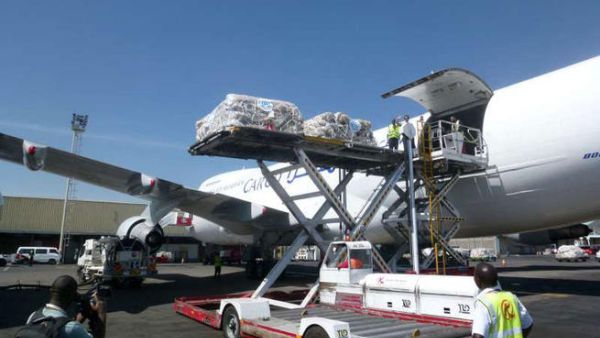The United Nations World Food Program began airlifting more supplies to Syria's northeast region Tuesday, according to an Agence France-Presse report.
"WFP started airlifting on Tuesday enough food to feed close to 30,000 displaced people for a month from Iraq to Qamishli in northeast Syria," WFP spokeswoman Elisabeth Byrs told reporters.
Because aid is nearly impossible to deliver via trucks to the northeast region, the U.N. WFP has been airlifting supplies to the area, with its latest delivery for 62,000 people completed in December.
WFP is planning to fly more than 400 tons of food and related aid items, which are being supplied by UNICEF and the International Organization for Migration, to the area which was deprived of all aid-related items for more than 5 months.
WFP's airlift is the only one of its kind currently under way in Syria, according to the AFP report.
Many aid efforts in Syria have been stalled due to road block and other dangerous ground conditions. According to U.N. agencies, efforts to deliver aid to the besieged town of Homs, for example, are still pending, with many stakeholders blaming the regime for not facilitating the conditions to allow aid into the rebel-controlled city.
The Syrian peace conference that took place in Geneva last week addressed the tenuous conditions for humanitarian convoys in the country, with the government pledging to allow aid into the city of Homs that has been under regime siege since June 2012. However, the convoys are still on stand-by, having not yet been able to enter the sieged city.
"As of this morning, the convoy in Homs is not moving. We're now talking about over three million people in hard-to-reach areas, of whom 242,000 are in effectively besieged areas without any humanitarian access at the moment," said Jens Laerke, spokesman for the United Nations' humanitarian coordination arm.








